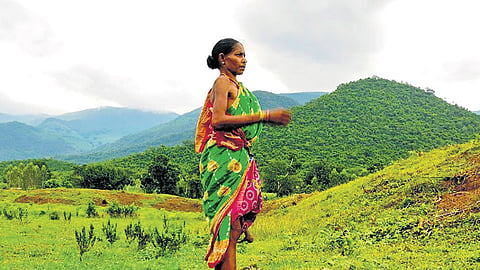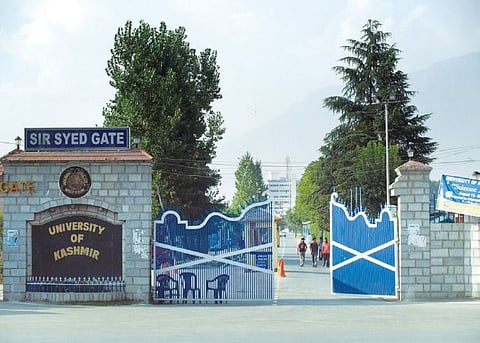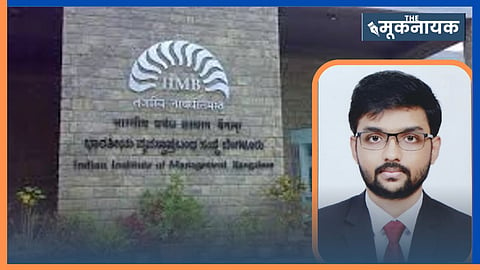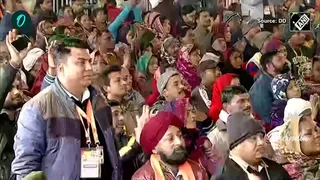06.02.2025..Untouchablity News.....अछूत समाचार.தீண்டாமை செய்திகள்.by Team சிவாஜி. शिवाजी .Shivaji.asivaji1962@gmail.com.9444917060.asivaji1961@gmail.com.facebook.sivajiyogatiruvannamalai.X.ShivajiA479023.
BJP hasn’t empowered its Dalit legislators, says Rahul

Congress MP and Leader of Opposition in the Lok Sabha Rahul Gandhi on Wednesday said while Prime Minister Narendra Modi boasts about having a large number of MLAs and MPs from the Dalit community representing the BJP, these legislators have…
Shubhadeep Chaudhary
Congress MP and Leader of Opposition in the Lok Sabha Rahul Gandhi on Wednesday said while Prime Minister Narendra Modi boasts about having a large number of MLAs and MPs from the Dalit community representing the BJP, these legislators have not been empowered by the party. “You (Modi) have taken away their power. They can’t make a decision. They have been made ministers but their OSDs are from the RSS,” he said.
Gandhi said while Dalits and other socially marginalised groups did get token representation in institutions, they have been kept out from key positions. “Without participation in the power structure, there is no point of representation,” he said.
“Representation without participation and control in the power structure does not mean anything,” Gandhi, who was addressing the birth anniversary celebrations of veteran freedom fighter and Dalit icon Jaglal Chaudhary in Patna today, said.
The Congress leader said ‘caste census’ proposed by the Congress would change the politics and economics in the country.
Caste census was not a mere survey but would be the first step to find out how much is the population of different castes and after that, financial survey and institutional survey would be conducted to know who controls which resources and institutions, he said.
Courtesy : The Tribune
In a first, 20% of new Naga sadhus are Dalits & tribals

PRAYAGRAJ: The Naga sadhus are emblematic of Maha Kumbh – matted dreadlocks, bodies smeared in ash, and clutching tridents, swords, and wooden staffs, not as mere weapons, but as symbols of their fierce devotion and ascetic might.
For centuries, these warrior ascetics who trace their lineage to Adi Shankaracharya were an exclusive brotherhood, drawn largely from the privileged castes. But this Maha Kumbh signalled a shift in the rigid boundaries of social hierarchies.
For the first time in recorded history, over 20% of newly-initiated Naga sadhus hailed from Dalit and tribal communities. A total of 8,715 seekers renounced the world to embrace the path of Naga sadhus and sadhvis. Among them, 1,850 were from Dalit or tribal backgrounds. In a parallel transformation, about 250 women stepped into the austere life of Naga sadhvis.
They came from the deep forests of Chhattisgarh, the riverine villages of Bengal, the mist-laden hills of Arunachal and Tripura, and the heartlands of MP. Leaving behind their homes, families, and former identities, they shaved their heads and performed their own Pind Daan – a ritual traditionally reserved for the departed. In that moment, they severed their ties with the old world, walking into an existence where caste and lineage no longer define them – only their spiritual pursuit does.
The akharas, monastic orders that have long been bastions of Hindu asceticism, have been quietly working towards this transformation. “All akharas are running campaigns to stop conversion of tribal and marginalised communities,” said Mahant Ravindra Puri, president of Akhil Bharatiya Akhara Parishad. “Many have chosen to take sanyas & dedicate their lives to Sanatan Dharma.”
The influence of Jagadguru Mahendranand Giri and Mahamandaleshwar Kailashanand Giri, both Dalit ascetics elevated to the highest religious ranks, has further inspired marginalised communities to seek acceptance within these traditionally insular spaces. “To stop conversions, it is necessary to bridge gap of caste, religion, and class,” said Shrimahant Narayan Giri, spokesperson of Juna Akhara. “This is what we are working towards, and that is why so many Dalits and tribals are embracing sanyas.”
Courtesy : TOI

More clouds, less of silver lining

“What really is the definition of development? To understand its impact, you must experience the pain firsthand. Imagine the house where you were born and grew up, completely destroyed. Your family lying amidst the rubble. What would you feel at that moment?" asks filmmaker and Chhattisgarh-based activist, Ajay T.G. This sense of loss is at the heart of Koi Chand Bhi Nahin, a 28-minute film that highlights the devastating effects of mining in the coalfield operated by South Eastern Coalfields Limited (SECL), where homes have been demolished and fertile agricultural land has been seized in the name of development. The film alternates between glossy, pro-development narratives from the Chhattisgarh ministry and the grim counter-narratives from activists and an Adivasi family.
No leaving home
Ajay’s documentary explores how development in India often perpetuates inequality, focusing on the struggles of those who have been left behind. "They bring in big machines and slice through the land as if cutting a cake, and this continues to happen. Once a mine’s closure is declared, there’s an agreement to restore and return the land to villagers. Yet, this promise is never fulfilled," Ajay explains.
The film features Bachan Kunwar, an adivasi resident of Barkutta village, whose life was upended by displacement. Despite losing most of her family, Kunwar refuses to leave her land near the mining site, insisting that the government fulfil its promise of a job for her family. Her defiance against systemic forces is embodied in her refusal to abandon her home amidst the constant explosions from the mining site in Korba.
Koi Chand Bhi Nahin challenges the idea that industrialisation is the only pathway to development. It highlights bureaucratic hurdles, broken promises by government officials, and the stark disparities between the marginalised and the powerful, wealthy elite in the country. “My film and research aim to spark conversations about infrastructure, healthcare, and the resilience of marginalised communities," says Ajay. “Change is possible, but only if we work together to address these systemic problems.” He remains hopeful for a future where development respects human dignity.
Hit on agriculture, indigenous knowledge
While Ajay’s film focuses on the immediate human cost of development, Chitrangada Choudhury’s Seed Stories zooms in on the long-term consequences—on agriculture and indigenous knowledge. The documentary follows Dr Debal Deb, an ecologist, and his team as they work to conserve over 1,000 endangered varieties of rice in the Niyamgiri mountains of Odisha. Seed Stories highlights the dangers of genetically modified crops and harmful chemicals that erode traditional agricultural practices. Choudhury, who met Dr. Deb in 2014, delves into Deb’s critical perspective on the paradox of food security. Despite the dramatic increase in food production since the Green Revolution, food insecurity still persists. “There is food production, but there is no access, no justice when it comes to food,” Choudhury recalls.
By 2018, she and her associate director, Aniket Aga, had begun volunteering on Deb’s farm. “We started volunteering on their farm…They are trying to conserve 1500 endangered heirloom rice varieties on their farm here to distribute the seeds to farmers for free. It's a powerful example of traditional agroecology,” Choudhury says. Over its 42-minute runtime, the documentary captures the Niyamgiri region’s indigenous agroecological practices, with the second part focusing on the transformation caused by modern agricultural practices and the commercialisation of agriculture, including crops like genetically modified cotton, which overshadow indigenous methods. Viewers meet Kunuji Kulusika, an agroecological farmer from Niyamgiri, who shares her seed collection and traditional farming practices. Choudhury underscores the urgency of documenting this knowledge, noting, “Maybe 20 or 25 years from now, there won’t be anyone left like Kunuji.”
Aniket Aga critiques multinational corporations for shaping modern agriculture with profit-driven agendas that undermine sustainable practices. Aga explains that genetically modified crops and industrial methods offer no room for balance, either dominating or destroying traditional agroecological systems.
At the heart of Seed Stories is a message about the importance of balance. The film critiques the industrialisation of agriculture and its focus on profit over sustainability. It emphasises the need for agricultural models that prioritise food security, farmers’ knowledge, ecological integrity, and sustainability, rather than the profit-driven agendas of global corporations.
Both films challenge the narrow definition of development as mere economic growth. They call for a more balanced approach, one that values human lives, ecological sustainability, and cultural heritage over unchecked expansion. Development, these films argue, should not come at the cost of the people and ecosystems it seeks to benefit.
The Unseen Barrier and Struggle for Fair Representation: A Case Study of Kashmir University

Srinagar- Depressed classes and minorities in India are spades of electoral politics. They continue to feel vulnerabilities at both levels of the power apparatus. The suicidal case of Rohith Vemula (SC) the unpowered student of PhD (2016), at the University of Hyderabad and Chander Shekhar (SC), an associate professor of psychology at Jammu University (2022) the empowered one are just two victims to understand it more lucidly. Data on seat denying to SC/STs in IITs and other institutions or dropping them out from the same institutions is another example of institutional vulnerabilities and insecurities for depressed classes.
But there is another level of exclusiveness in Kashmir University, that is, to not advertise or give reservation seats to depressed classes by the ratio which is prescribed by the concerned National Commission, like (UGC in this case) Or shrink the space for the subjects of that State in reserved quota by allowing other states' subjects to apply in their place is a clear dictation and Otherization against the SC/ST candidates in state-level recruitments.
So, technically, here is denial for their own as well as violation of domicile rules of state categories that deny to other states subjects to apply in reserved quota. Recent Haryana Assistant Professor recruitment, UP PCS recruitment and others are just for reference.
Kashmir University's discriminatory appointment policy; the old and quite beautiful campus of Kashmir University smells casteist and corruptionist taste by not advertising or giving less than proportional to the total number of seats for the reserved categories for the time being. It has never given the due right of SC/STs of her own state.
Before 2019, it never gave the reservation to SC/STs in Assistant Professor recruitments. But by now, it has changed the old wine in a new bottle. In the recent recruitment procedure under different departments of the University though had been given the seats to the categories but on the price of their state-level depressed classes of reserved categories and that is a clear violation as well as discrimination against the SC/ST candidates of the domicile of Jammu and Kashmir.
According to Article 16 parts 3 & 4 of Fundamental Rights and Article 309 of the Indian constitution states that state-level recruitments are legally and morally bound to make it the exclusive right of their state subjects of depressed classes. State level recruitments shouldn't give to an outsider in reserved categories of that state like PSCs and other states' Universities. This is practically also true in state-level recruitments of other states like Haryana, Uttar Pradesh, Bihar, Andhra Pradesh, Maharashtra and others.
Kashmir University did it in a very smart manner as recruitment in higher education nowadays does happen. They neither mentioned in the recruitment policy notification that the outside of Jammu and Kashmir in reserved categories are eligible nor did they display names with full addresses of the candidates from which state and category one has been called for interview. On the day of the reserved categories candidates’ interview, domicile reserved categories candidates got to know that people of different Indian states/UTs like Himachal Pradesh, Karnataka and Ladakh were called for interview.
This is not simply the thing of “Jugaad” recruitment but an open yet hideous violation of domicile rules, appointment regulations and fundamental rights under Article 16 of the Indian constitution. Who is unaware of the so-called recruitment procedure in higher education of India, especially in Central and State Universities where meritorious are systematically pushed back and replaced with those who have good “Jugaad” links with the recruiting agency as well as the governing regime? Meritorious and without “Jugaad” are teaching as contractual and guest faculty on less than labor wages in Jammu and Kashmir without getting any financial security during the period of disengagement. Their screams for the last decade are unheard and yet to be continued till the undefined period.
In India, the pattern of exam scams and subsequently delaying in their investigation and conduction is a common phenomenon of nowadays. Similarly, here too candidates will have to knock on the door of the honourable court for justice which will derail the selection process and drag down the institutional credibility as well a huge impact on the candidate’s career owing to this delayed vicious cycle of appointments.
The Supreme Court of India (SC) has ruled on several cases of scams in higher education recruitment. For example, the West Bengal Teacher Recruitment Scam 2016. The SC has ordered fresh examinations, investigations, and the return of fraudulently earned salaries. After finding irregularities with the OMR sheets. And said there are too many flaws in the selection of candidates. The bench said tainted candidates can be divided into different categories – ineligible, those whose ranks were manipulated to bring them into the selection list, those whose marks were manipulated to make them leapfrog over meritorious candidates, manipulation of OMR (some of which were blank), and those not on the merit list getting appointed. While enumerating the alleged flaws in the recruitment process, which was advertised in 2016 while appointments were made in Jan 2019, CJI Khanna in a lighter vein asked,” Dal mein kuch kala hai ya sab kuch kala hai?”
The UGC-framed Guidelines for the Recruitment of Assistant Professors in Colleges and Universities are disdained by most Universities like KU while making recruitment of Assistant Professors. For the time being, the recruitment of Assistant Professors has become a big scam and a major source of corruption for the Governing Bodies of these Universities. Because, the Guidelines of the UGC for recruitment of Assistant Professors are very Vague, and whatever we have are not followed by the Universities while conducting the recruitment of Assistant Professors.
In the time of wrinkling and shrinking of job opportunities in higher education and open “Jugaad” system in the recruitment of Central and State Universities, the discriminatory and corruptionist policies of Kashmir University against the depressed SC/ST and minorities are unbearable and arbitrations that have questioned the very procedure, institutional reliability and transparency of higher education which will lead to significant physiological impact on candidates as well as the procedure of selections. A long way to equality has to break the glass ceiling.
Pattern of Deaths in Elite Institutes? BAMCEF Gujarat Pushes for SIT Inquiry into ST Student’s Death at IIM-B

Bangalore: The death of Nilay Kailashbhai Patel, a Scheduled Tribe student pursuing an MBA at the Indian Institute of Management (IIM) Bangalore, has raised serious concerns about the safety and treatment of students from marginalized communities in elite educational institutions. Patel’s body was discovered on the hostel campus road by a security guard around 6:45 a.m. on Sunday, January 5, 2025. The postmortem report indicated multiple injuries and shock as the cause of death, which could be suggestive of an altercation.
Following this incident, Prikshit B.Rathod, a social activist from BAMCEF (Backward and Minority Communities Employees Federation), Surat, Gujarat, has written to the Bangalore Police Commissioner demanding a Special Investigation Team (SIT) probe into the matter.
The activist has raised multiple concerns regarding Patel’s death and broader issues affecting Scheduled Caste (SC), Scheduled Tribe (ST), and Other Backward Class (OBC) students in premier institutions like IIMs, IITs, and medical colleges.
Key Facts and Circumstances Surrounding Patel’s Death
Patel had celebrated his birthday with friends in a hostel block on the night of Saturday, January 4, 2025.
He was last seen returning from his friend’s room at 11:30 p.m. that night.
His injured body was found the next morning on the hostel campus.
According to his peers, Patel was a brilliant student and had recently secured a high-paying job in an e-commerce firm, which he was set to join on Monday.
BAMCEF has highlighted that his death coincided with a Supreme Court hearing on a PIL (Public Interest Litigation) concerning student grievances and equal opportunities in higher education.
The organization has linked his case to a pattern of violence against SC, ST, and OBC students in elite institutions, alleging a systematic targeting by caste-based groups.
BAMCEF has put forth several key demands in the investigation:
SIT Investigation: A special team should be constituted to conduct an impartial investigation into Patel’s death.
Application of Atrocities Act: Given that Patel belonged to a Scheduled Tribe, the case should be registered under the SC/ST (Prevention of Atrocities) Act.
Murder Investigation: The case should be treated as a murder rather than a suicide under relevant sections of the Bharatiya Nyaya Sanhita (BNSS).
CCTV Footage Analysis: Authorities should retrieve and examine footage from all hostel blocks, especially ‘F’ block, from 10:30 p.m. on Saturday to 7:00 a.m. on Sunday.
Identification of Attendees: A detailed record of all individuals who attended Patel’s birthday celebration should be maintained, along with their statements.
Panel Postmortem: A second autopsy should be conducted to verify the cause of death and determine whether Patel consumed any intoxicants or poisonous substances.
Forensic Report Disclosure: If a forensic examination has already been conducted, its findings should be made public.
Time of Death: The postmortem report should explicitly mention Patel’s exact time of death.
Pattern of Deaths in Higher Educational Institutions
Advocate Prikshit B.Rathod pointed to a disturbing trend of deaths among SC, ST, and OBC students in higher education institutions, alleging that many of these cases are dismissed as suicides despite strong indications of foul play.
According to the available data, between 2004 and 2024, 115 deaths in IITs alone have been classified as suicides, but many bear the hallmarks of targeted killings. Rathod argues that caste-based violence in prestigious institutions is often overlooked, with systemic discrimination playing a role in such deaths.
The letter also raises concerns about potential involvement of organized caste-based groups who may be targeting students from marginalized communities to prevent their rise in government and private sector positions.
In addition to an SIT probe, BAMCEF has urged the government to take concrete measures to protect SC, ST, and OBC students in elite institutions. This includes establishing a robust grievance redressal mechanism and implementing stringent policies against caste-based discrimination in hostels and academic environments.
6.
How Dalit couple argued own case, won damages for intellectual property loss
It was a fight that would end up in the courts, which sat in judgment on a fundamental question of law: does ‘damage to property’ in the Scheduled Castes and Scheduled Tribes (Prevention of Atrocities) Act include intellectual property (IP)?
- +1 More
With their laptop allegedly stolen and decades of research data destroyed during an alleged eviction attempt by their house owner’s son in Nagpur in 2018, Dalit scholars Dr Kshipra Kamlesh Uke and Dr Shiv Shankar Das say the only option they had was to “fight it out”.








Comments
Post a Comment